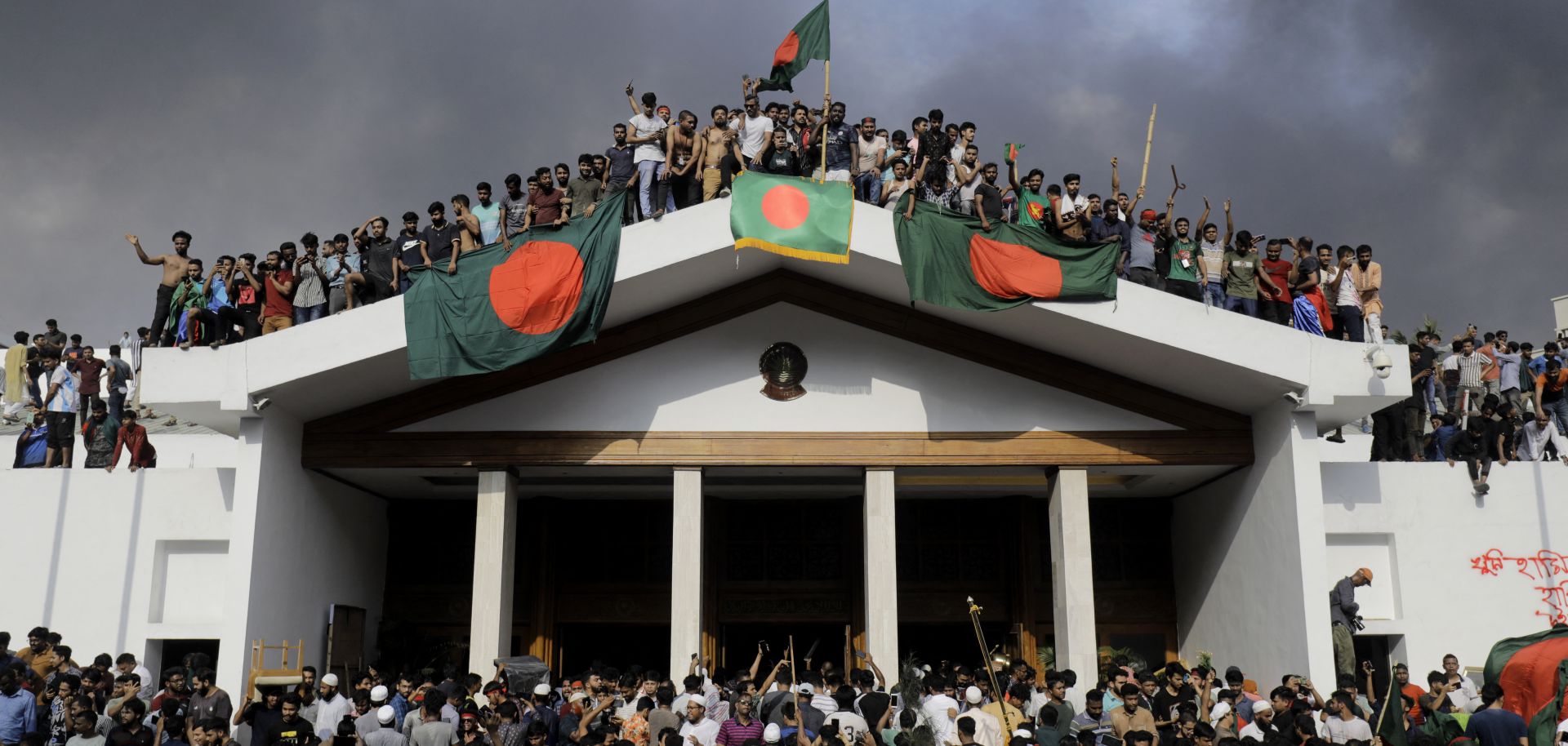In Bangladesh, Prime Minister Sheikh Hasina's decision to resign and flee the country sets the stage for an uncertain interim government that will have to contend with a high risk of social unrest and economic challenges, both of which could hamper the country's crucial ready-made garment industry. On Aug. 5, Bangladesh's Army Chief General Waker-uz-Zaman announced that Hasina had resigned after weeks of mass anti-government protests, which were met with severe crackdowns by security forces and led to over 200 deaths. The unrest directed at Hasina and her ruling Awami League (AL) party reached a peak when thousands of anti-government protesters defied a nationwide curfew and stormed the Ganabhaban, Hasina's official residence. Local media reports indicate Hasina escaped moments before protesters stormed the building, and subsequently boarded a military helicopter to flee to India, where she is reportedly awaiting the United Kingdom to grant her asylum. Following Hasina's resignation, General...

